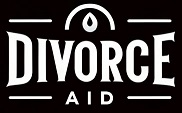From April 2013, significant alterations to legal aid have impacted many individuals with lower incomes undergoing divorce or separation.
Before April 1, 2013, legal aid was accessible to those with limited financial resources for various family law disputes, including divorce, child custody, financial issues, care proceedings, and cases of domestic abuse. With the new regulations, legal aid availability is narrowed to applicants of low income, specifically those receiving benefits or meeting certain financial criteria, and is restricted to certain categories:
- Domestic Abuse Cases: Legal aid is available for those experiencing domestic abuse, covering disputes over children, finances, and applications for injunctions. Evidence of abuse, which encompasses physical, psychological, sexual, financial, or emotional harm, must be provided through various forms such as court orders, letters from authorities, or professional confirmations.
- Child Protection by Local Authorities: Parents, children, and other relevant adults can access legal aid if a local authority raises child protection concerns.
- Child Abduction Cases: Legal aid covers cases involving the risk of child abduction outside the UK or unlawful removal within the UK.
- Forced Marriage: Individuals at risk of being forced into marriage can seek a Forced Marriage Protection Order through legal aid.
For respondents in divorce proceedings, legal aid is reserved exclusively for victims of domestic abuse.
The impact of these changes is significant, reducing the number of family breakdown cases eligible for legal aid from 250,000 annually to approximately 40,000.
Despite these limitations, alternative support options exist for those affected. Amicable resolutions are encouraged, with support from relationship counseling services like Relate, qualified mediators, or collaborative lawyers skilled in resolving family disputes. For cases requiring court intervention, free legal representation may be sought from organizations like the Bar Pro Bono Unit or through the Public Access scheme, which allows direct hiring of a barrister, often at reduced rates for low-income individuals.
Self-representation in court is another option, though it comes with challenges and the need for a solid understanding of legal procedures and laws. Supportive charities offer practical and emotional support for self-representatives, though they do not provide legal advice.
For assistance and more information on eligibility for legal aid, individuals can contact the Legal Services Commission. The eligibility for legal aid also considers the merits of the case and the applicant’s financial situation, which may require repayment with interest in some cases.
Legal aid prior to April 2013 covered a broad spectrum of legal services for those unable to afford them, based on financial eligibility and the case’s merit. Various types of legal aid, such as legal help, help at court, family mediation, and full representation, offered different levels of support, from initial advice to full court representation.
Applying for legal aid involves a detailed assessment by a solicitor or adviser, with online calculators available as a preliminary guide to eligibility. However, the comprehensive evaluation of a case’s merits and the applicant’s financial status is crucial for determining eligibility.
The revisions to legal aid emphasize the importance of seeking alternative dispute resolution methods and being informed about the available support options for navigating the complexities of family law disputes with limited financial resources.
